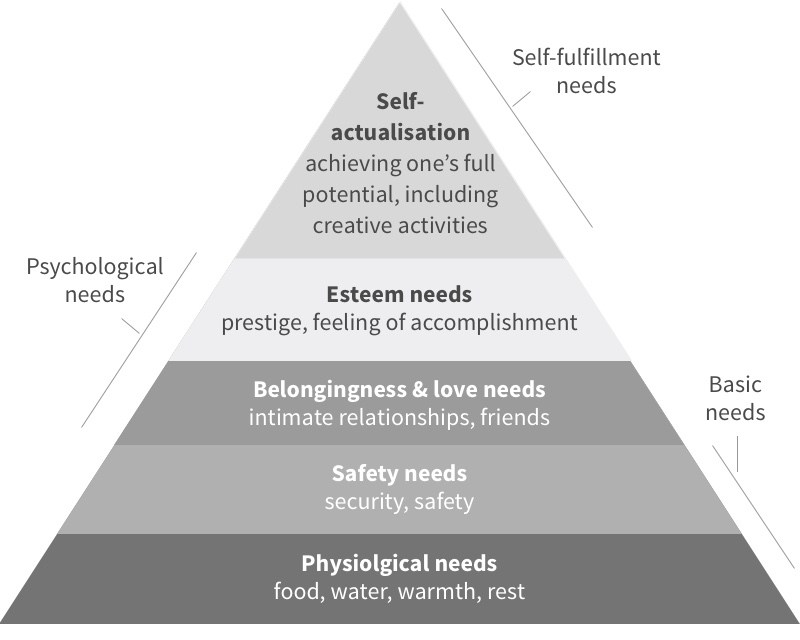Why non-members just can’t resist accessing the secrets of secret membership organisations and societies.
The Hotel de Bilderberg is located off the village of Oosterbeek in the Netherlands.
It sits nestled between centuries-old oak trees within De Veluwe National Park.
Its surroundings give the hotel an almost fairytale-like feel.
Its secludedness also led to its hosting of a secret event.
In 1954, the most powerful men in the world met at the hotel to discuss matters related to the future of the world.
Since then the meetings happen annually.
The Bilderberg Group is now considered the world’s shadow government.
Over the years government representatives, businesspeople, politicians and bankers have attended.
Bill Clinton, Bill Gates, Prince Charles, Gerald Ford, David Rockefeller and Jeff Bezos are amongst them.
All considered powerful members of society.
But the agendas of those meetings always remain a secret. As well as those invited. (We know of some previous attendees due to leaks.)
Tony Blair attended the meeting in 1993. A year later he became Prime Minister.
Make of that, and similar theories which you can find online, what you wish.
Regardless of such theories, the public is prohibited from getting anywhere near the meetings. Journalists who have tried to interview participants have been arrested.
And the meetings are still shrouded in secrecy sixty years on.
The Bilderbergs even denied their own existence until recently.
Tony Blair even denied involvement with the Bilderberg Group in the House of Commons.
Secret societies and membership organisations have, however, existed for thousands of years.
The Freemasons are a similar sort of society.
Members aren’t publicised so secret signs and handshakes distinguish members from non-members.
So their secrets aren’t revealed to outsiders.
Freemasonry has recently announced itself a self-improvement society; a society to learn about yourself with the help of others.
But the death of Roberto Calvi – AKA God’s Banker – suggests there’s also more involved.
He was found hanging beneath Blackfriars Bridge in London in June 1982.
The police reopened the investigation into his death several years later and suggested he had links with the Vatican and the Freemasons. The case is still open.
The all-male group now has six million members across the world.
Regardless of the intentions of such membership organisations, they are powerful in many ways.
In the case of the Bilderberg Group, world leaders want inclusion. Just as the press wants to cover the meetings and the public wants all to be revealed.
The unknown is alluring.
We can’t help but gravitate towards such societies. We want in in every way.
Membership organisations that sit behind locked doors are exclusive.
Exclusivity plays on the scarcity mindset and the fear of missing out.
Members appreciate involvement because there’s a belief that they’ve worked for that membership.
They’re hand-picked and are privileged.
When something is exclusive, what’s gained from membership is perceived to be in limited supply and available only to selected individuals.
This could be knowledge from secret sources or carefully graded teachings.
Giving members a competitive advantage over non-members.
Membership also leads to other unique opportunities, activities, ventures and connections.
Mutual protection is also attained, as well as a common desire for positive change and access to entertainment such as rituals and ceremonies.
And the feeling of joining something “special” in the first place.
Humans have chased membership in organisations and groups as such since the dawn of time.
Because they tap into people’s natural instincts and needs.
Loyalty, learning, belonging, challenges and fun are some of these needs.
Not to mention security, empowerment and self-importance.
Once these are gained, members will do all they can to protect this advantage from others.
Why do you think cliques are so common in the workplace?
Abraham Maslow’s Hierarchy of Needs gives a breakdown of such needs in human psychology circles.

Of course, the organisers of secret societies, like all organisations, have the ability to control its surroundings and its members’ thoughts.
But that’s another topic.
The possibility (and fear) of exclusion is a powerful factor in the psychological dynamics of a secret society.
Which is why we’re so intrigued and which is why we’re interested in them and their concealed intentions and activities.
It’s in our DNA.
Add on top our hierarchy of needs then we have a recipe for something irresistible.
Organisations like the Freemasons, Skull and Bones, Illuminati, Knights Templar and the Bilderberg Group will exist and will continue to attract and recruit members.
They’ll also generate huge attention, even if they wish to avoid it.
Because anything remotely secretive creates demand.
But also, and perhaps more sinisterly…
We just love secrets.
–
If you liked this post, and want to help me reach more people, please share on Twitter!

I had never heard of some of the groups that you talk about but I know they are out there. I have never cared for secret societies, like the Freemasons. They give me the heebie jeebies, so I have always stayed away. Very good article though.
Hi Cindy and David. Appreciate the comment and thanks for reading. 🙂
An interesting post, I had heard of the Bilderberg Group but wasn’t sure in what context!
Thanks, Malcolm. Appreciate you reading the post!
The Bilderberg Group and similar societies hasve always fascinated me… and now I think I know why! 🙂
Secret societies of any description are always fair meat for authors to manipulate!
Hi Gareth! Thanks a lot for joining.
Great blog! 🙂
6 million members? Doesn’t that seem the opposite of exclusive?
Hi Goldie. And fair comment!
It depends on the context… it’s a lot as a number by itself. But maybe not so much if we consider the 7.442 billion population of the world in 2016.
True. Perspective really does matter.
Thanks for stopping by again to read. Speak soon! 🙂
Great post! There’s room to expand on “exclusive” — sororities and fraternities, exclusive social clubs and country clubs – not so secret, but people are often dying to get in! Thanks for a good read and cuisine for thought! 🙂
Thanks, Jan. Yes, you’re right. Exclusivity (and/or secrecy) is something we just can’t keep away from! No problem, I appreciate you stopping by to read my ramblings. 🙂
well put together, worth the read… you sure cover the humanity side of wanting to figure out mystery or know a secret… many have gotten off track, seeking dark secrets…
Thanks, Tony. Glad you enjoyed it – and thanks for reading! 🙂
And yes some do go off track… which is where the real issues begin! G
your welcome!!!
I love hearing secrets. Am I sinister? Hmmm.
Perhaps, Brenda. Perhaps.
Thanks for reading! ☺
Great post! Never heard of Bilderburg. I have heard of the trilateral commission which sounds similar.
Thanks, PJ!
I actually don’t know too much about the Trilateral Commission, but I did come across them whilst researching this post. I believe Rockefeller, a Bilderberger too, started it. I guess he loved a secret group! 🙂
I guess it goes with being uber-rich!
Great post. I’ve written a fiction book based on the Freemasons, so this article was a great insight to other societies.
Thanks for sharing 🙂
Thanks, Sharlene. Can’t say I read much fiction but it sounds interesting! ☺
Thanks for the follow! And I thought my blog was a well kept secret! 😂. Great post, really interesting.
Thanks!
Thanks for your follow. This is absolutely fascinating. The reality of people hiding, things done in the shadows, people doing things in secret. It seems to me some of the worst things in history are things done in the darkness, in hiding. Thanks for this great post, Gareth.
Thanks, Dayle! Appreciate the kind words. 🙂
Very interesting, I’ve heard of some of the above mentioned groups but never really thought they existed. Very interesting.
Thank you, Samora!
Hmm 🤔
Interesting knowledge…
Thank you!
Interesting. Very. But also a little scary. Thank you for posting this.
Thanks for stopping by again. Appreciated. Happy New Year!
Groucho Marx said, “I don’t care to belong to any club that will have me as a member.” Perhaps we know why, We want to become members of clubs where we cannot get membership.
Absolutely correct, Ankur.
Thanks for reading.
Hidden truth has always drawn me in, like treasure in a game in a universe simulation. The excitement is in anticipation of being close to finding something of great value, including for personal growth. An interesting question is what each person thinks should remain secret. It seems there is a full spectrum on this. One function of secret societies could be to control the things they feel the general public should not know, for their own good.
Very interesting research Gareth, Thank you for sharing. May I re-blog it to my WordPress https://olivarui.wordpress.com ?
Thank you. Yes, please do!
Interesting post. I remember watching a documentary about this group probably 20 years ago and it certainly peaked my interest but I’ve rarely heard of it since.
Thank you!
How do you stop them?
Great post. According to you, are they things to encourage or discourage?
Good question! 😐 But it’s one I’d hate to answer…
Thanks for reading Chinedu!
no quams
There is a good reason to believe such societies exist. But given the amount of power or influence the supposedly wield, do they work in tandem or against each other?
Good question… I would think they have their own agendas and secrets, which would be a secret society’s main source of power.
Wow so interesting.. Well i have heard About them before.. And i really believe it but in the same point its too scary for me..
Thanks, Sajda.
Welcome 🙂